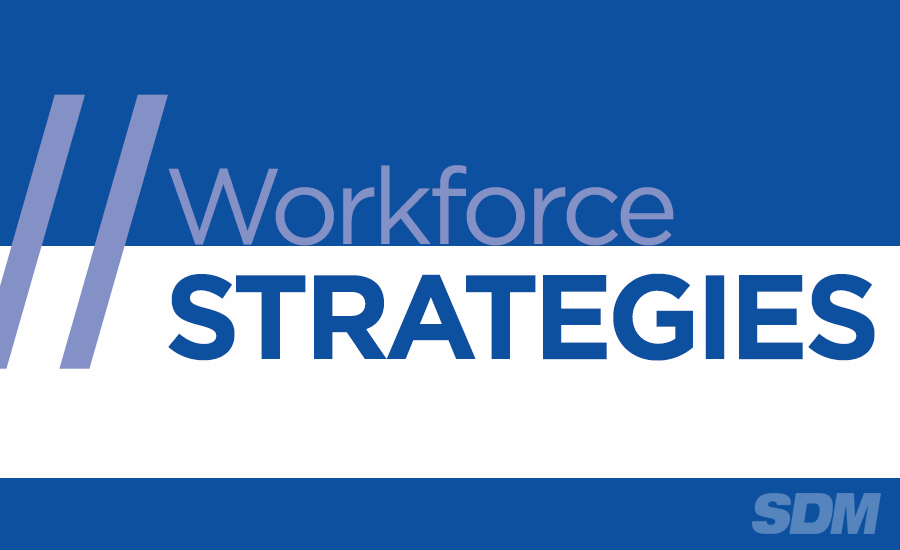One way the security industry can grow its talent pipeline and future is through offering mentorship programs and fostering mentor/mentee relationships between established industry professionals and young, up-and-coming talent or those new to the industry. Offering mentorships through your company helps mentees thrive by creating valuable learning experiences and developmental opportunities, encourages meaningful industry connections and helps mentors discover new industry and workplace trends, approaches and perspectives.
The Security Industry Association’s (SIA’s) Talent Inclusion Mentorship Education (TIME) program is one such initiative, launched in 2021 and designed to promote diversity, equity, inclusion and empowerment of underrepresented identities in the security industry by creating well-defined pathways for learning and development.
“A good mentorship program allows the mentor and mentee to create a relationship based on connection and intangibles,” said Katie Greatti, associate director of learning and development at SIA.
Interested in starting a mentorship program at your company or improving an existing one? Here are some takeaways from TIME participants to consider applying to your own mentorship offerings.
What Makes a Good Mentor?
Both mentors and mentees alike stress the importance of listening skills as a characteristic of a great mentor.
“Being a mentor is about listening, learning and sharing of ideas and thoughts between individuals in as natural an environment as possible,” said mentor Rodger Smith, technical trainer, Electromechanical Solutions Group at ASSA ABLOY Opening Solutions. “Just talk with each other, creating your own relationship, knowing each relationship will be different.”
“A great mentor is someone who listens. While mentors are also teachers, it is important to have someone who can and is willing to also learn from their mentee,” said mentee Keyser Santana, head of the Global Security Program Management Office at Pratt & Whitney. “I’ve noticed my mentor’s willingness to listen to what I have to say and his ability to teach me based on anecdotes and experiences I have already shared with him.”
Mentee Morgan Khov, technical project manager at Northland Controls, echoed the value of open communication, saying a key component of her relationship with her mentor was “how open and honest” they were with each other.
“In our first meeting, we both knew we wanted to grow our mentor/mentee relationship organically, and we were able to build a level of trust and respect with each other,” said Khov. “[My mentor] always listened, been upfront with me and helped me see things through another lens, while also giving me great advice for my career and personal life.”
Mentee Lauren King – HR rotational professional at dormakaba – shared similar sentiments on the importance of an open, comfortable dialogue between mentors and mentees.
“[A great mentor should provide] the mentee with the platform to speak freely on the highs and lows of their week, project, job, etc. My mentor is also great at bringing forth personal experiences in her role as well, in the role as a manager and source of guidance,” said King. “It does not sound like it is just textbook-style mentoring – rather, it’s a true feeling that she cares and has had similar instances in the past that have helped to shape her and that I can, in turn, utilize as guidance going forward.”
Mentor Cameron Javdani, president at SoundSecure, emphasized that mentors must come to each meeting with their mentees prepared, remembering key items discussed in the last session and materials needed for the current session.
“The worst thing you can do as a mentor is go into a session cold and ask for background information again,” said Javdani. “How vested in mentorship can you be if you always have to be reminded of what's important to the person you're mentoring?”
What Can a Mentorship Program Teach Mentors and Mentees?
Having a mentorship program at your company is a great way to foster your young employees’ development and help them succeed in the security industry.
“The most valuable part of my mentor/mentee experience has been embracing my professional vulnerabilities and working through them enough to feel empowered,” said Santana. “My mentor has allowed me the safe space to identify where I need to develop and helped me establish ways in which to strengthen in those areas.”
Khov said having a mentor “helped me not only learn about the industry, but also reflect on choices I’ve made and how I can learn and grow from them.”
Participating in a mentorship program is a growth opportunity not just for mentees, but for mentors as well, as emphasized by both Javdani and Schmidt.
“It is exciting to relive some of my past experiences through the experiences they share with me,” said Schmidt. “While times change, so many things remain the same.”
“Our overarching goal is to provide a mentee with a framework to think through key decisions in life and in their career to realize long-term goals. Often, these decisions involve getting a promotion, buying a first house or going to graduate school,” said Javdani. “Through mentorship I've been privileged to see people confidently move towards turning their aspirations into reality.”
Tips to Help Mentors and Mentees Thrive
SIA’s mentors and mentees offer the following tips to help mentors and mentees make the most of their relationships:
- If entering a mentorship program that “matches” you to a mentor or mentee, be as upfront and honest during the application process about your background, interests and goals so the program can select as complementary a match as possible.
- Be open-minded and set expectations early about your goals for the mentor/mentee relationship.
- Immerse yourself in the mentor/mentee experience, be present during your meetings and actively participate.
- Always come prepared to each meeting and be respectful of one another’s time.
Ready to get started with mentorship at your company? Keep these tips and takeaways in mind to set your initiative up for success.







